Frontpage News (3259)
Doctors, pharmacists disagree on consultancy cadre approval for health workers
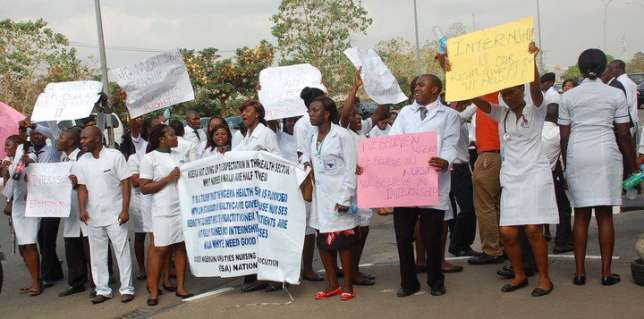 There appears to be no end in sight to the recent imbroglio between doctors and pharmacists in Nigeria. Pharmacists under the aegis of Pharmaceutical Association of Nigeria (PSN) Lagos branch have condemned the doctors’ that is the Nigerian Medical Association (NMA) position on the recent Lagos State government circular on consultant pharmacist cadre and demands by striking health workers on the relativity of salaries.
There appears to be no end in sight to the recent imbroglio between doctors and pharmacists in Nigeria. Pharmacists under the aegis of Pharmaceutical Association of Nigeria (PSN) Lagos branch have condemned the doctors’ that is the Nigerian Medical Association (NMA) position on the recent Lagos State government circular on consultant pharmacist cadre and demands by striking health workers on the relativity of salaries.
Health workers under the aegis of the Joint Health Sector Union (JOHESU) have been on industrial action since April 18, 2018, following the inability of the Federal Government to meet their demands, which include approval of consultancy cadre for other health personnel besides medical doctors and making their salaries relative to that of the physicians.
 The incorporated trustees of Kingdom Human Rights Foundation International on Wednesday made true its threat to commence contempt suit against top officials of the Joint Health Sector Union for allegedly disobeying an order of the court directing them to suspend their ongoing strike.
The incorporated trustees of Kingdom Human Rights Foundation International on Wednesday made true its threat to commence contempt suit against top officials of the Joint Health Sector Union for allegedly disobeying an order of the court directing them to suspend their ongoing strike.
A contempt suit prescribes imprisonment as a penalty for disobedience to a court order.
 Doctors abandoned to run hospitals in wake of the ongoing strike by health workers have accused members of Joint Health Sector Unions (JOHESU) of frustrating their attempts to function during the strike.
Doctors abandoned to run hospitals in wake of the ongoing strike by health workers have accused members of Joint Health Sector Unions (JOHESU) of frustrating their attempts to function during the strike.
Nigerian Medical Association (NMA) accused JOHESU members of locking up clinical service points and equipment to press home their “spurious” demands.
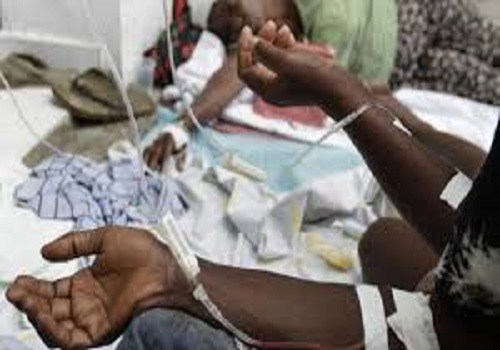 The World Health Organisation has deployed 39 staff members to contain the outbreak of cholera in Mubi North and Mubi South-South Local Government Areas of Adamawa.
The World Health Organisation has deployed 39 staff members to contain the outbreak of cholera in Mubi North and Mubi South-South Local Government Areas of Adamawa.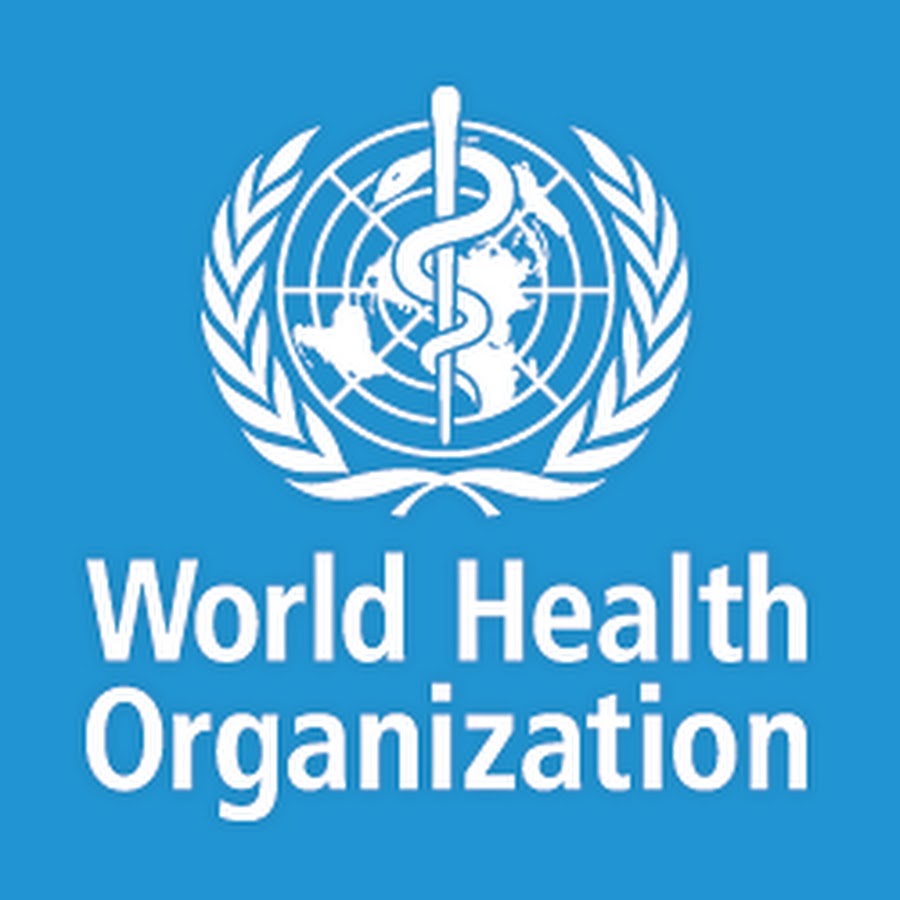 The World Health Organisation, in a recent report, has described the Ischaemic heart disease and stroke as the world’s biggest killers, accounting for a combined 15.2 million deaths in 2016. The report states that both diseases have remained the leading causes of death globally in the last 15 years.
The World Health Organisation, in a recent report, has described the Ischaemic heart disease and stroke as the world’s biggest killers, accounting for a combined 15.2 million deaths in 2016. The report states that both diseases have remained the leading causes of death globally in the last 15 years.
 The Joint Health Sector Union (JOHESU), appeared to have bowed to pressure as it has suspended its six weeks nationwide strike, while negotiation continues on Monday. Its Chairman, Mr Josiah Biobelemoye, disclosed this in a communique issued at the end of the union’s National Executive Council meeting on Thursday in Abuja.
The Joint Health Sector Union (JOHESU), appeared to have bowed to pressure as it has suspended its six weeks nationwide strike, while negotiation continues on Monday. Its Chairman, Mr Josiah Biobelemoye, disclosed this in a communique issued at the end of the union’s National Executive Council meeting on Thursday in Abuja.
He said the strike suspension followed the intervention of Senate President, Dr. Bukola Saraki, who displayed a high level of statesmanship and sincerity of purpose.
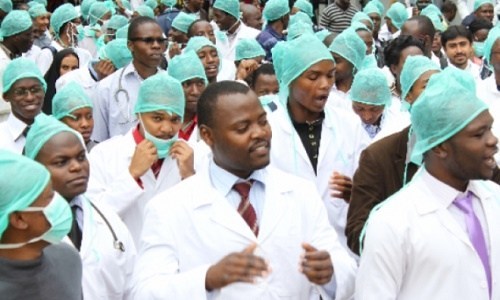 The Nigeria Association of Resident Doctors (NARD) says it cannot guarantee industrial harmony after a scheduled meeting on June 2. Ugochukwu Eze, the NARD Publicity and Social Secretary, Kaduna State branch, made this known at a news conference, on Thursday in Kaduna.
The Nigeria Association of Resident Doctors (NARD) says it cannot guarantee industrial harmony after a scheduled meeting on June 2. Ugochukwu Eze, the NARD Publicity and Social Secretary, Kaduna State branch, made this known at a news conference, on Thursday in Kaduna.
“As the 21 days, grace handed over to the federal government to resolve all lingering issues as well as the recalling of its members sacked by the Jos University Teaching Hospital (JUTH) elapsed on Thursday, May 31,
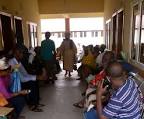 A group of medical doctors has launched a mobile app aimed at reducing patient-waiting time in Nigerian hospitals. Patients in public hospitals in the country spend an average of two hours before they are attended to by a doctor, according to a report.
A group of medical doctors has launched a mobile app aimed at reducing patient-waiting time in Nigerian hospitals. Patients in public hospitals in the country spend an average of two hours before they are attended to by a doctor, according to a report.
The app, known as KompleteCare, can be accessed at the Google play store using a mobile phone. It is a collaboration between the Society for Family Physicians of Nigeria (SOFPON) and a healthcare company in Nigeria, Sevenz Healthcare.
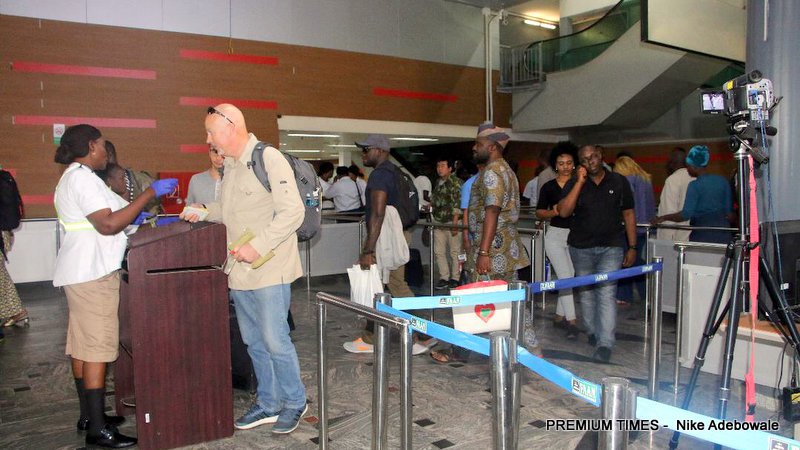 The Federal Airports Authority of Nigeria (FAAN), has intensified screening of inbound and outbound passengers at the Murtala Muhammed International Airport (MMIA), Lagos, with the use of thermal and infrared scanning equipment.
The Federal Airports Authority of Nigeria (FAAN), has intensified screening of inbound and outbound passengers at the Murtala Muhammed International Airport (MMIA), Lagos, with the use of thermal and infrared scanning equipment.
The Federal Executive Council (FEC) had on May 9 directed that steps should be taken to prevent the Ebola from entering into Nigeria following a fresh outbreak in the Democratic Republic of Congo (DRC).
 Tobacco use has declined markedly since 2000, according to a new WHO report, but the reduction is insufficient to meet globally agreed targets aimed at protecting people from death and suffering from cardiovascular and other non-communicable diseases (NCDs).
Tobacco use has declined markedly since 2000, according to a new WHO report, but the reduction is insufficient to meet globally agreed targets aimed at protecting people from death and suffering from cardiovascular and other non-communicable diseases (NCDs).
For World No Tobacco Day 2018, WHO has joined with the World Heart Federation to highlight the link between tobacco and cardiovascular diseases (CVD) the world’s leading causes of death, responsible for 44% of all NCD deaths, or 17.9 million deaths annually.
More...
 The Minister of Health, Prof. Isaac Adewole, again on Wednesday said that the Federal Government would not pay members of the Joint Health Sector Unions, who had been on strike since April 17.
The Minister of Health, Prof. Isaac Adewole, again on Wednesday said that the Federal Government would not pay members of the Joint Health Sector Unions, who had been on strike since April 17. The National Association of Resident Doctors (NARD) has shelved its planned strike. This was the decision reached at a scheduled meeting by the doctors which ended late on Saturday night.
The National Association of Resident Doctors (NARD) has shelved its planned strike. This was the decision reached at a scheduled meeting by the doctors which ended late on Saturday night.
Hours after health workers under the Joint Health Sector Unions (JOHESU) suspended their nationwide strike after 44 days, the resident doctors on Thursday served a notice of their own looming strike.
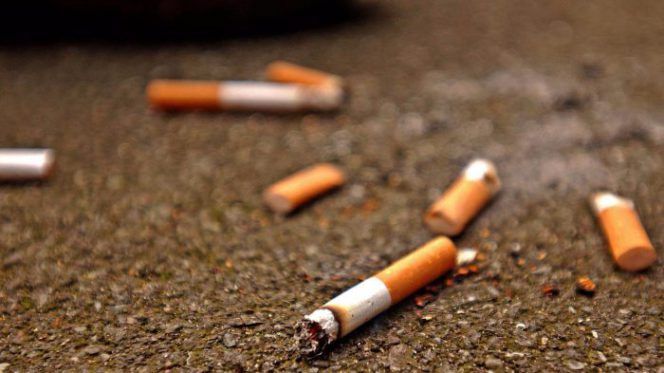 Over 20 billion sticks of cigarettes are consumed annually in Nigeria, the Minister of Health, Isaac Adewole, has said. Mr. Adewole also said 4.5 million adults currently use tobacco products, while about 82 percent of people who visit bars and nightclubs are exposed to second-hand smoke.
Over 20 billion sticks of cigarettes are consumed annually in Nigeria, the Minister of Health, Isaac Adewole, has said. Mr. Adewole also said 4.5 million adults currently use tobacco products, while about 82 percent of people who visit bars and nightclubs are exposed to second-hand smoke.
The minister, who spoke during a press briefing organized to mark the 2018 World No-Tobacco day celebration in Abuja on Monday, said in 2015, the country’s projected accumulated loss to tobacco was put at $7.6 billion.
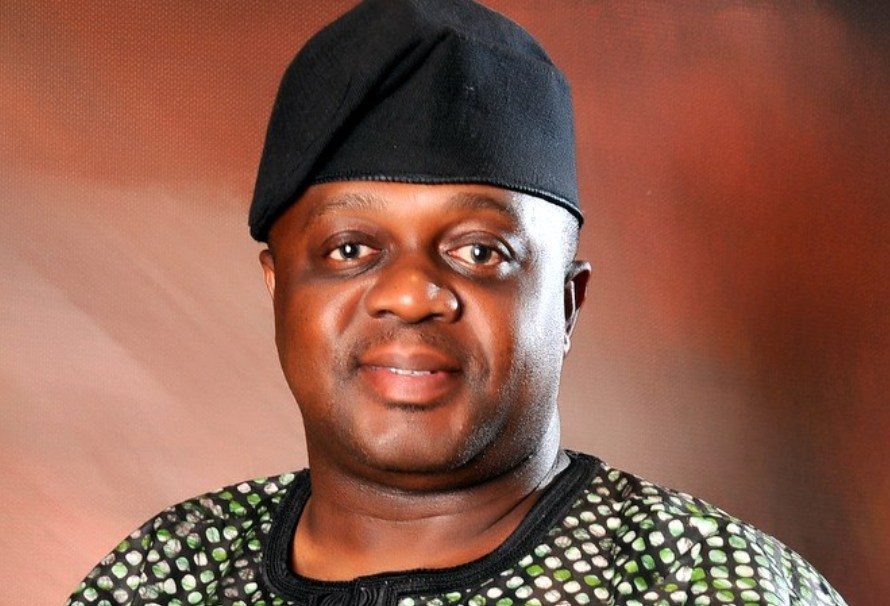 The Chairman, Senate Committee on Health, Lanre Tejuosho disclosed this while explaining various shortfalls bedeviling the funding of the health industry at the commemoration of MAMAYE day 2018 in Abuja.
The Chairman, Senate Committee on Health, Lanre Tejuosho disclosed this while explaining various shortfalls bedeviling the funding of the health industry at the commemoration of MAMAYE day 2018 in Abuja.
The theme of the event is ‘Improving Nigeria’s Health Budget Performance’.






